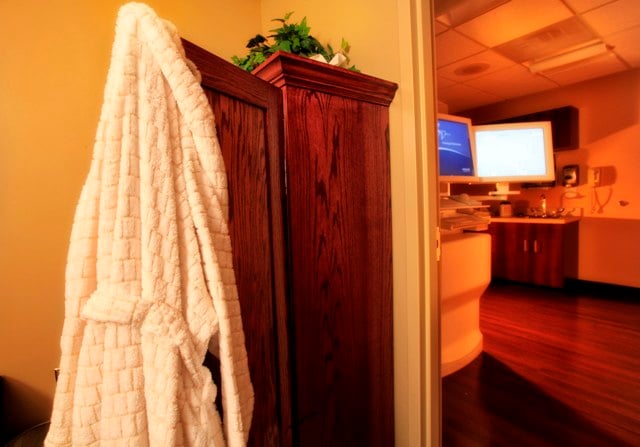You probably have friends and relatives who have had breast cancer. Doctors can offer no certain strategies for preventing breast cancer. But there are ways to reduce your risk factors and strengthen factors that may help protect you.
Unlike lung cancer, there is no smoking gun to be avoided, although smoking is a risk factor for any cancer. Studies have found an association between excessive alcohol consumption and the risk of breast cancer. Women who drink 2.3 to 4.5 bottles of beer or 2.5 to 5.5 glasses of wine a day have a 41 percent higher incidence of breast cancer than those who do not.
Being overweight or obese is a risk for postmenopausal breast cancer, particularly if a good portion of the weight was gained as an adult.
There is some evidence that physical activity, even when started relatively late in life, protects against breast cancer, reducing the risk by 10 to 30 percent.
The evidence for diet is not as conclusive, but eating a diet that is low in saturated fats and high in fruits and vegetables has many health benefits. And a healthy diet, plus exercise, can help you maintain a healthy weight.
So, in terms of lifestyle, there are things you can and should do: exercise regularly, maintain a healthy weight, don’t smoke and don’t drink to excess.
Depending on your age, regular screening with mammography will not prevent cancer but will allow detection of cancer when it is more treatable.
Probably the most important risk factors for breast cancer are estrogen and inherited changes in the BRCA1 and BRCA2 (Breast Cancer 1 and Breast Cancer 2) genes. With these, the situation becomes much more complex and is not always within your control.
The risk of breast cancer is highest in women who have been exposed the longest to estrogen. This may be due to an early start or a late end of menstruation, never getting pregnant or use of hormone replacement therapy following menopause. A woman who breastfeeds her children generally has a lower risk, in part because her estrogen levels are lower while she is breastfeeding.
Women with BRCA1 and BRCA2 abnormalities have a very high risk of breast cancer — three to seven times greater than that of a woman without the mutation. The risk of ovarian cancer is also very high. These risks can be lowered substantially by undergoing preventive mastectomy (often double mastectomy) or surgical removal of the ovaries. These are drastic measures, of course, and it’s important to realize that these mutations are rare, accounting for only 5 to 10 percent of all breast cancer cases.
Knowing whether you are at risk of developing breast cancer is an essential part of your breast health. Discovering whether risk factors are present is key to preventing or identifying the disease early. For this reason, breast health screenings at the LMH Breast Center now include administration of a family health questionnaire based on the National Comprehensive Cancer Network guidelines.

If your answers on the questionnaire indicate you may be at a higher risk for developing cancer, the LMH Breast Risk Assessment Clinic can provide comprehensive information, clinical services, genetic testing and support.
Healthy habits can help you reduce your risk of breast cancer:
- Maintain a normal weight (a body mass index under 25).
- Exercise: walking 30 minutes a day or more five days a week or the equivalent.
- Eat a diet that is low in saturated fats and sugar and high in fruits, vegetables and whole grains.
- Don’t smoke.
- Drink in moderation, no more than one drink a day.
- Breastfeed your babies as long as possible.
- Avoid or limit hormone replacement therapy.
- Get regular breast cancer screening according to your health care provider’s instructions.
Roxy Johanning, MSN, APRN, NP-C, CRN, CBPN-IC, is the clinical coordinator for the LMH Breast Center.